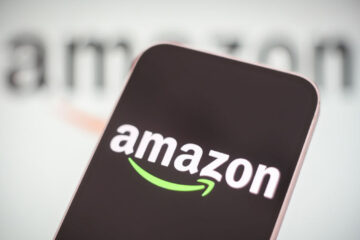The European Union says Apple ‘has abused its dominant position’ and unfairly shielded its Apple Pay wallet from competition.
The European Union’s antitrust regulators charged Apple (AAPL) – Get Apple Inc. Report restricted competitors’ access to its mobile phone chip technology.
‘Apple Abused its Dominant Position’
“We are concerned that Apple may have illegally distorted competition in the market for mobile wallets on Apple devices,” EU antitrust chief Margrethe Vestager said in her statement of objections. “On a preliminary basis, we have found that Apple abused its dominant position.”
By excluding others from the game, Vestager said “Apple has unfairly shielded its Apple Pay wallet from competition.”
“We designed Apple Pay to provide an easy and secure way for users to digitally present their existing payment cards and for banks and other financial institutions to offer contactless payments for their customers,” Apple said in a statement. “Apple Pay is only one of many options available to European consumers for making payments, and has ensured equal access to NFC while setting industry-leading standards for privacy and security.”
The company said it “will continue to engage with the Commission to ensure European consumers have access to the payment option of their choice in a safe and secure environment.”
The EU charged that Apple restricted access to key inputs that are necessary to develop and run mobile payment apps, or “mobile wallets”,which allow for payments with a mobile device, in shops and online.
‘Tap and Go’
In Europe most payments in brick-and-mortar shops made with a mobile phone rely on a wireless technology called NFC or “Near Field Communication,” which enables communication between a customer’s mobile phone and the shop’s payments terminal, allowing them “‘tap and go.”
NFC technology was developed by third parties, is standardized and available in almost all payment terminals in Europe.
The EU said its concerns relate to Apple’s decision to block access to the NFC technology for payment purposes and use it solely for Apple Pay.
Users of Apple devices can only pay with the “tap and go” function using Apple Pay and not with other wallets, the EU charged, because competing wallet developers need access to the NFC on Apple devices to reach Apple users.
Vestager said that developing a mobile payment application is costly and investment may only be worth it if developers can reach both Apple and Android customers.
“Evidence on our file indicates that some developers did not go ahead with their plans as they were not able to to reach iPhone users,” she said. “This behavior stifled innovation and prevented competition in the mobile wallet market.”
While there are other technologies, such as those based on QR code, that can be used for mobile payments, Vestager said NFC technology is the most widespread in the EU, and allows for the safest and most seamless experience.
Access to the Ecosystem
“Apple has built a closed ecosystem around its devices and its operating system, iOS. And Apple controls the gates to this ecosystem, setting the rules of the game for anyone who wants to reach consumers using Apple devices,” Vestager said. “But other app developers depend on the access to this ecosystem to develop innovative mobile wallets.”
She also dismissed Apple’s argument about security risks, saying that evidence “indicates that Apple’s conduct cannot be justified by security concerns.”
In January, CEO Tim Cook told analysts during an earnings’ call that “the growth of Apple Pay has just been stunning.”
“It’s been absolutely stunning,” he said. “And there’s still obviously a lot more there to go. And because there’s still a lot of cash in the environment. And so I think that both of these and whatever else we might do have a great future ahead.”


